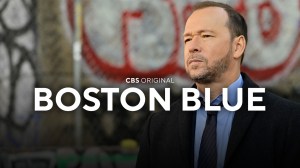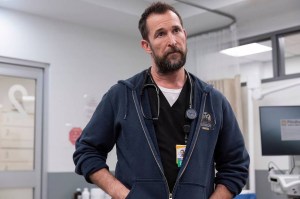Noah Cyrus recently revealed that she’s been in addiction recovery for two years. Speaking to Rolling Stone, Cyrus revealed that she developed an addiction to Xanax as a teenager, due to the influence of someone she was dating. “My boyfriend at the time, when I was 18, was the first person that gave me a Xanax, and it became a way for us to bond,” she told the outlet.
Cyrus added, “I think I wanted to fit in with him. I wanted to be what he wanted and what he thought was cool and what I thought everybody was doing.” She went on to share that she soon found another use for the prescription drug, explaining, “Once I felt that it was possible to silence things out for a second and numb your pain, it was over.” The singer also revealed that she found it simple to acquire the drug because she “was surrounded by people who were easily able to get it by buying it from people.”
Videos by PopCulture.com
Soon, Cyrus discovered that she’d fallen into “this dark pit, bottomless pit” that kept her sleeping most every day, and dealing with memory lapses. During the earliest days of the Covid-19 pandemic, the singer wound up so entrenched in her addiction that she began to pass out in an interview, and missed saying her goodbyes to her dying grandmother. “I felt so guilty for not being there when my grandma died,” she says. “I was there physically, but emotionally, I was not there. I couldn’t be.”
After months of being addicted to Xanex, Cyrus says she began to seek help and was met with overwhelming support. “I was being helped by everybody that I needed help from, and it took some time to get on my own two feet,” she says, also revealing that working on The Hardest Part — her upcoming debut full-length album due out in September — was a therapeutic experience for her. “It gave me so much structure in the time that I really needed structure, because I didn’t want to just be sitting around and stirring in my brain,” she said. “It gave me hope.”
When it comes to her experience, Cyrus says it’s cathartic to share but she isn’t doing it for any ulterior motives. “I’m not trying to be, like, any spokesperson for recovery or anything like that,” she said. “I, myself, am just going through it and figuring it out.” Cyrus added, “I wake up in the mornings, and I’m able to look in a mirror and go on about my day without hating myself. I’m able to comfort myself and nurture myself.”
Most Viewed
-

NEW YORK CITY – DECEMBER 19: "Toil and Trouble" – Elsbeth is thrown into the world of television after the showrunner of a long-running police procedural is brutally murdered in his office, and although it appears to be the act of a disgruntled fan, she begins to suspect the show's longtime star Regina Coburn (Laurie Metcalf) who yearns for artistic fulfillment. Meanwhile, Judge Crawford (Michael Emerson) continues to be a thorn in Elsbeth's side, on the CBS original series ELSBETH, Thursday, Dec. 19 (10:00-11:00 PM, ET/PT) on the CBS Television Network, and streaming on Paramount+ (live and on demand for Paramount+ with SHOWTIME subscribers, or on demand for Paramount+ Essential subscribers the day after the episode airs). Pictured (L-R): Carrie Preston as Elsbeth Tascioni and Carra Patterson as Kaya Blanke. (Photo by Michael Parmelee/CBS via Getty Images)







